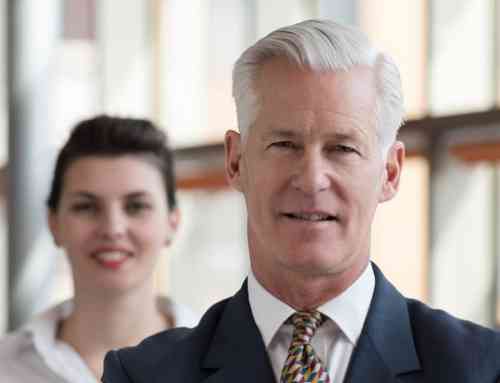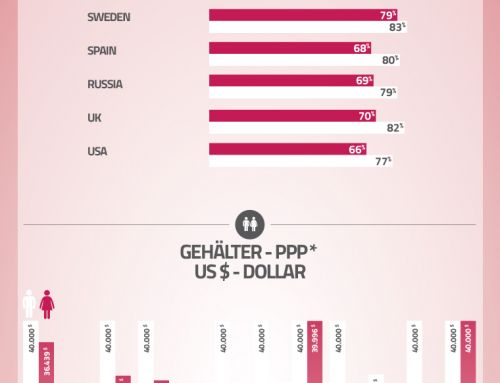Viele träumen davon, in den USA Karriere zu machen oder zumindest dort zu arbeiten. Und wie wir aus unserer Geschäftserfahrung wissen, werden die Herausforderungen nicht selten unterschätzt. Man denkt, man kennt doch die Amerikaner. Hier ein Erfahrungsbericht eines Geschäftspartners, der seinen Traum verwirklichte – und auf dem Boden der Tatsachen landete.
How I walked away from my dream job or be careful what you wish for
At the age of 32 I was hired to lead strategic accounts sales at a Fortune 500 corporation in California and moved from Frankfurt, Germany to San Diego, California. I was over excited and felt like my big dream came true – I will be working and living in California, among the best and brightest, assume new responsibilities and work on things I never had a chance to work before. I felt like I was ready for any challenge and could handle anything. However, looking back, this was one of the most difficult and challenging times in my life on many different levels. I was naive and frankly unprepared to face what was coming my way. Not only was I not prepared for many things that I ended up facing in my new work and life environment, I wasn’t able to correctly understand and recognize my own reactions and my own emotions – I just kept plugging along, suppressing my feelings, becoming distant and isolated. What was supposed to be my dream job ended up in almost a disaster two and a half years later, when I reached a point of total apathy, which not only jeopardized my chances for a promotion, but brought me to the brink of losing my job.
Two months into the new job I was boarding a plane to Atlanta for a series of business meetings. After the take off my hands started shaking uncontrollably, cold sweat was streaming down my face and my neck so that I had to unbutton my tailored shirt and loosen my tie. An overwhelming feeling of fear took over me – I wanted to get off that plane immediately. I could not explain it. Something horrible was going to happen to me on that plane. I felt trapped on a plain cruising at a 30000 feet altitude and it drove me into panic. I started gasping for air, fearing I was going to suffocate. On the surface I must have looked calm if perhaps a little pale and nobody noticed anything strange in my behavior. I forced myself to breathe slowly and after a while calmed down. Later I dismissed the whole incident as something unimportant that I just had to deal with. Only later I realized that it was a panic attack. It was my delayed emotional reaction to me being overwhelmed by all the cultural, business and personal changes happening to me all at once. It was an early warning sign that I decided to dismiss.
The division I was hired for was providing technology solutions for US trucking companies. I never lived or worked in the US before, not counting two semesters as a graduate student in South Carolina. Most trucking companies have their headquarters not in flashy urban areas of New York City or Chicago, but deep in rural areas across the country. Within two years I visited 37 US States, and stayed in towns most people never heard of. I experienced real America, not the Hollywood kind. I spent time playing golf, drinking and visiting strip clubs with my customers – which was very different, to say the least, from the lifestyle I had living in Frankfurt, and I cannot say that I enjoyed that new lifestyle.
From the beginning I assumed responsibility for a team of sales managers, scattered across the country. Their average age was about 10 years older than I was. This was another challenge – how to manage and motivate your workforce, when you’re the youngest guy in the room. First and foremost it was about building credibility and not by retelling things I did in the past – many of them had more impressive stories than I did. It was also not about flying to a meeting and quickly closing a deal with a customer to impress them – that would have worked with younger and inexperienced sales people, but not with the professionals working for me. It was about understanding them as individuals, understanding their roles in the bigger picture, the challenges they face in the field and helping them succeed by pulling necessary strings in the headquarters – because in the end their success was my success. It was about spending time in the field and listening to the customers, asking the right questions and understanding their problems.
But to do that and to build rapport it was crucial to spend more time and talk casually with my peers, management, customers and staff. Coming from Europe and despite speaking multiple languages I was puzzled what topics besides business I can talk to them about. Most casual conversations revolved around sports – American sports I was totally unfamiliar with, such as American football, baseball and basketball. It took me to actually play baseball twice myself to understand the rules of the game and maintain a conversation about it. I also had to learn to play golf, as it was the favorite pastime for my customers and salespeople. I never became a good golfer, but I could keep up without totally embarrassing myself. But all of that came later, and at first I was at a total loss on how to get along with everybody. I also had to quickly learn that one has to avoid conversations about politics and religion in America, at least with the people you don’t know well – it can be very personal for many and the best way not to head into a potential conflict was to stay away from these topics altogether.
Now imagine trying to figure out how to manage your team, interact and build rapport with your customers, understand the internal politics and power games in the office, meet people and make friends in a totally new environment – all while being under pressure to meet or beat your sales goals and handle all other challenges of a highly demanding job? That’s what was affecting me and causing panic attacks and insomnia.
After two and a half years me and my team had great results, but I was completely burnt out. I was not interested in my job anymore, I did not have any friends – I simply did not have time for them, I still felt like an outsider at work, increasingly realizing that despite good results and nice bonuses I hated my life and my career. How did I get to that point? It took me a while to realize that and it was one of the most difficult things for me to accept and admit – I was not taking seriously my personal and emotional struggles. I found myself constantly trying to change myself to accommodate a new culture. I did not have and did not seek wise mentors in my immediate environment who understood what I was going through and were able to give me good advice. I did not have enough experience to face managerial challenges coming my way, while also coping with a different language, different life and different habits. I realized that I was emotionally unprepared to take some of the challenges that I faced – that is, I did not know how to regulate my frustration, how to manage my anxiety and how to not let all that big job and the luxuries associated with it go into my head, which led to my fear of looking for something better – “how can I quit if I’m being paid so much money”?
Fortunately, things turned for the better after I found strength and confidence to secure a new job in a different division of the same company, a job to lead a highly visible international project where I felt much more at home and met a lot of great people in the process. In retrospect, what I experienced was an important lesson that I had to learn one way or the other. Later I had many real dream jobs, some of which I created for myself and I was much better prepared for them. But first I had to pay a heavy toll for my naiveté and arrogance, which left me with some takeaways.
In each big change we face – moving to a new country, a steep promotion or a new opportunity, especially when time and performance are at stake – it’s critical to understand and analyze the upcoming challenges, ideally with a coach, a mentor with a lot more experience, who can point out challenges we cannot see ourselves. It’s critical to think through mitigation strategy and coping techniques for some of these challenges. It’s always important to ask oneself from time to time – do I really enjoy what I’m doing? Why am I doing this? Am I at the right place? We all face frustration at some point in our carriers, however it’s crucial to make a distinction between a temporary setback and a mounting resentment that can lead to a burnout. While “can do” attitude is important, it’s also important to realize its limitations. Understanding one’s limitations is not a sign of weakness – it’s a sign of maturity. Once we realize our limitations we can start asking for help – and getting the help we need at the time we need it is a prerequisite for real and lasting success.
Und die Moral von der Geschicht?
Für Daniel Obodovski ging alles gut aus. Glücklicherweise und weil er erkannte, was er ändern musste. Ein interkulturelles Training USA kann nicht den kompletten Kulturschock verhindern. Aber es kann ihn abmildern, weil man darauf vorbereitet ist, was einen erwartet. Das gilt insbesondere auch dann, wenn man in neue Rolle schlüpft, wie zum Beispiel eine Führungskraft in einer ungewohnten Umgebung zu sein. Wie Daniel beschreibt, kommt dann alles zusammen und die Probleme potenzieren sich.
Daniel Obodovski
…ist heute Gründer und CEO von The Silent Intelligence und
Co-Autor eines der ersten IoT-Fachbücher, welches 2014 in
die Top10 bei Amazon aufstieg. Nach Top-Positionen bei
Motorola und Qualcomm beschäftigte sich zunehmend
mit SmartCity-Projekten, und gründete u.a. SCALE San
Diego (Smart Cities Accelerator, Labs & Environment).






































